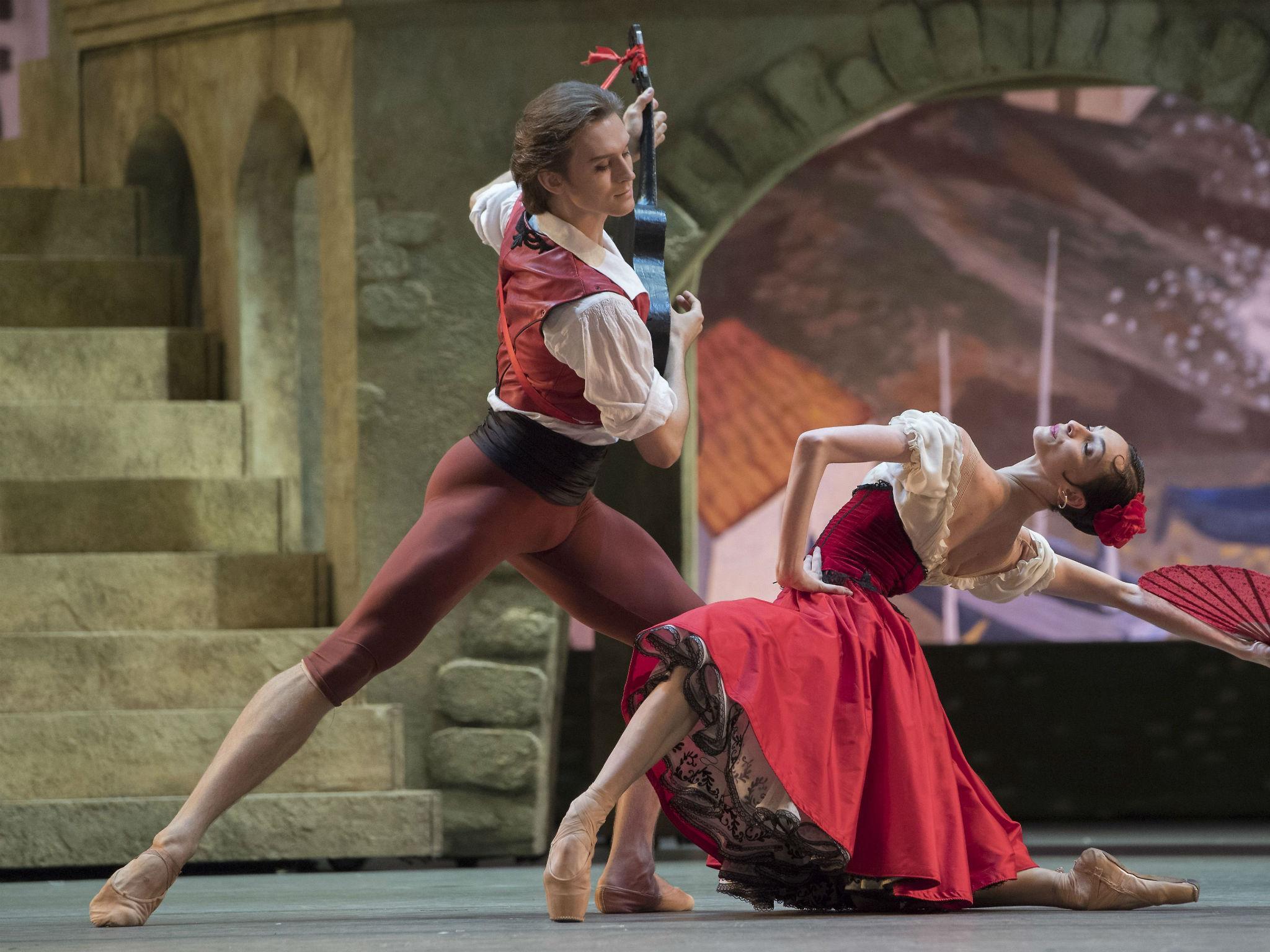The Bolshoi Ballet, Royal Opera House, review: 'The pace is tremendous'
The Bolshoi, one of the world’s major ballet companies, return to London with a new production of Don Quixote

The Bolshoi Ballet return to London with a new production of Don Quixote, a rising ballerina and considerable gusto. This summer season opens with the company in exuberant form.
Based in Moscow, the Bolshoi is one of the world’s major ballet companies. This season marks 60 years since its sensational first London visit; since then, it’s become a regular visitor to the west. It’s also survived all manner of upheavals, including the recent horrific attack on former director Sergei Filin and many changes of director.
Now led by Makhar Vaziev, the Bolshoi looks in good shape. The dancers are lighter than the heroic Soviet mould of the past, with longer lines and more emphasis on fast footwork. They’ve kept the big, joyful energy associated with this company.
Don Quixote is a good vehicle for it. Alexei Fadeyechev’s production, new this year, feels immediately familiar: an old friend spruced up. Marius Petipa’s 1869 ballet, revised by Alexander Gorsky in 1900, is a long way after Cervantes. It focuses on village lovers Kitri and Basil rather than on the confused knight, complete lots of Spanish dances and a tutu’d vision scene.
Fadeyechev’s staging opens with a video projection of the novel, but Valery Leventhal’s scenery is brightly 19th-century in style, with attractive costumes by Elena Zaitseva. The pace is tremendous, helped by Pavel Sorokin’s bright conducting of the Minkus score. The production swoops happily through its many dance scenes, without feeling rushed.
Olga Smirnova, who danced Kitri on opening night, is the Bolshoi’s rising star. Tall and long-limbed, trained in the refined St Petersburg school, she’s a very elegant dancer. She’s not quite a natural Kitri – more princess than outgoing village girl – but she has technique in spades. Her turns are glitteringly fast; she dives fearlessly into partner Denis Rodkin’s arms. She’s well-matched by Rodkin’s bright-eyed Basil, who has a clean jump and sure partnering.
The supporting cast is strong. Anna Tikhomirova is imposing as the street dancer, and shows her gazelle-like jump in the Grand Pas. Kristina Karasyova has gorgeous backbends as Mercedes, pouring herself backwards until her head meets her heels. Ruslan Skvortsov is a lively Espada. Daria Khokhlova is a speedy, perky Cupid in the vision scene.
Alexei Loparevich is an idealistic Don, while Roman Simachev literally threw himself into Sancho Panza’s comedy, with gasp-making antics when he’s tossed in a blanket. Vera Borisenkova was all silent-movie intensity in the Spanish dance. Anastasia Gubanova led a wild jig: Russian dance meets the Charleston.
Until 13 August. Box office 020 7304 4000
Join our commenting forum
Join thought-provoking conversations, follow other Independent readers and see their replies
Comments
Bookmark popover
Removed from bookmarks